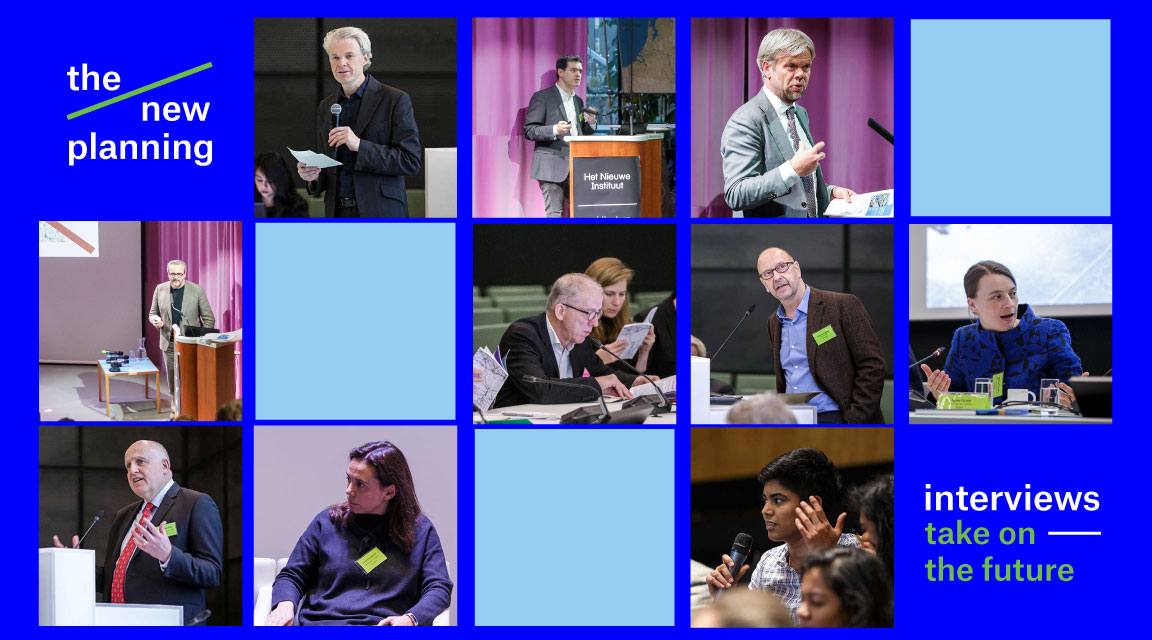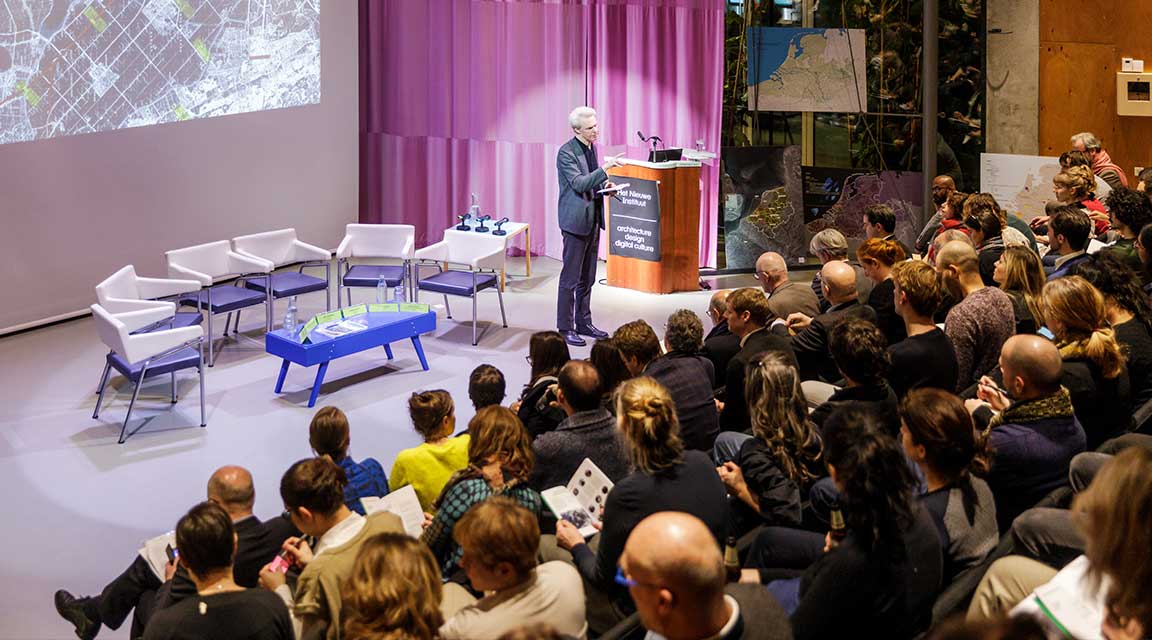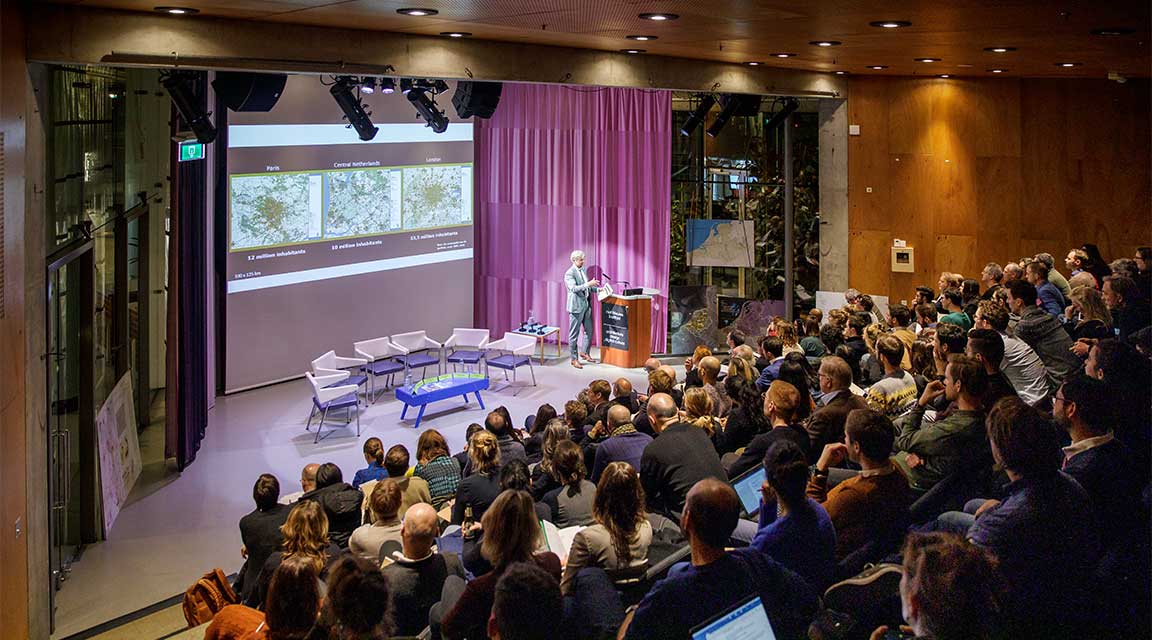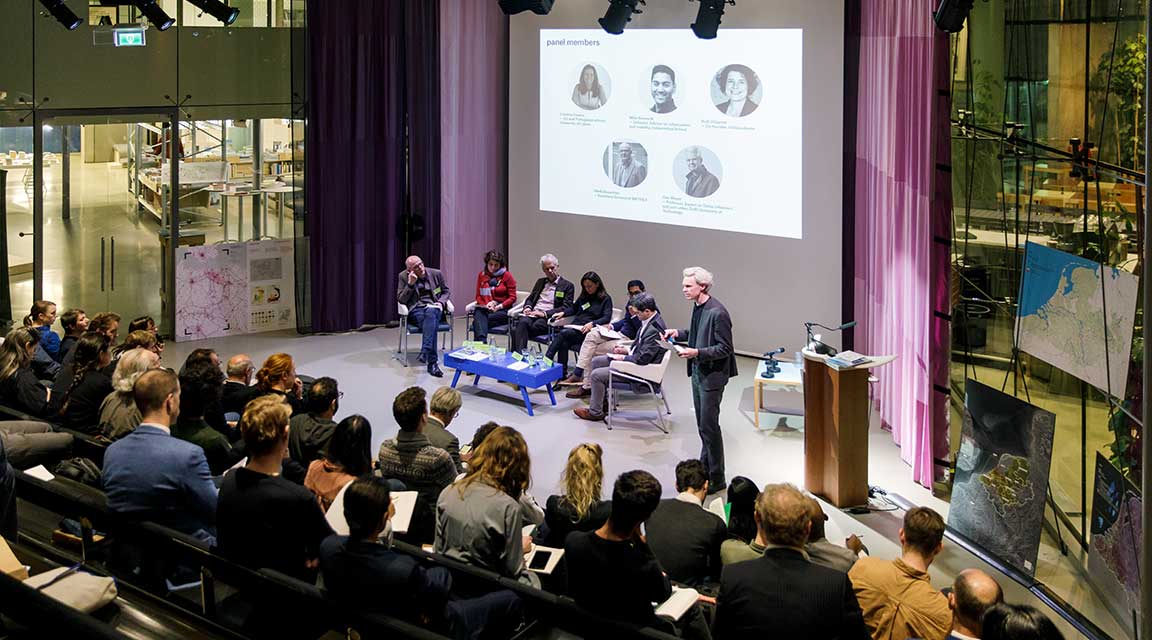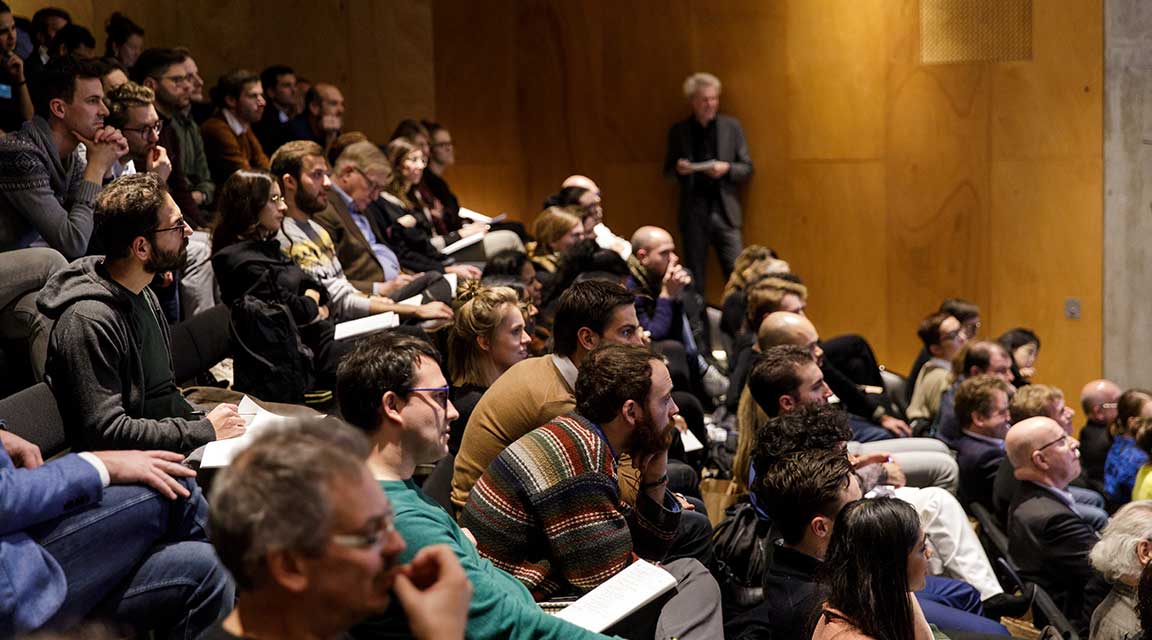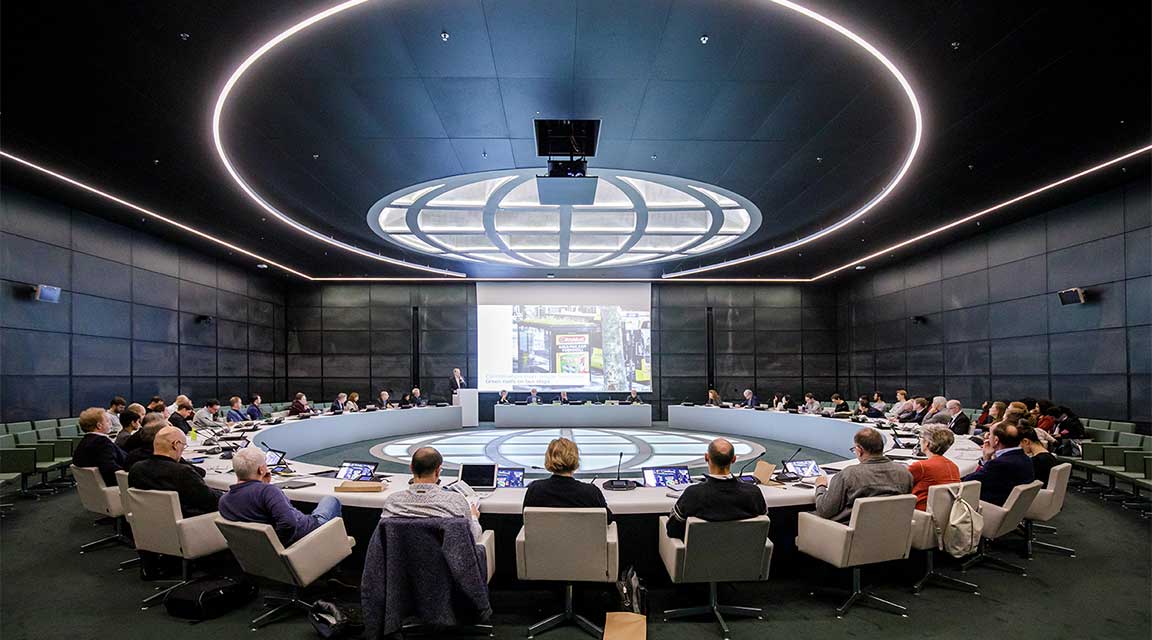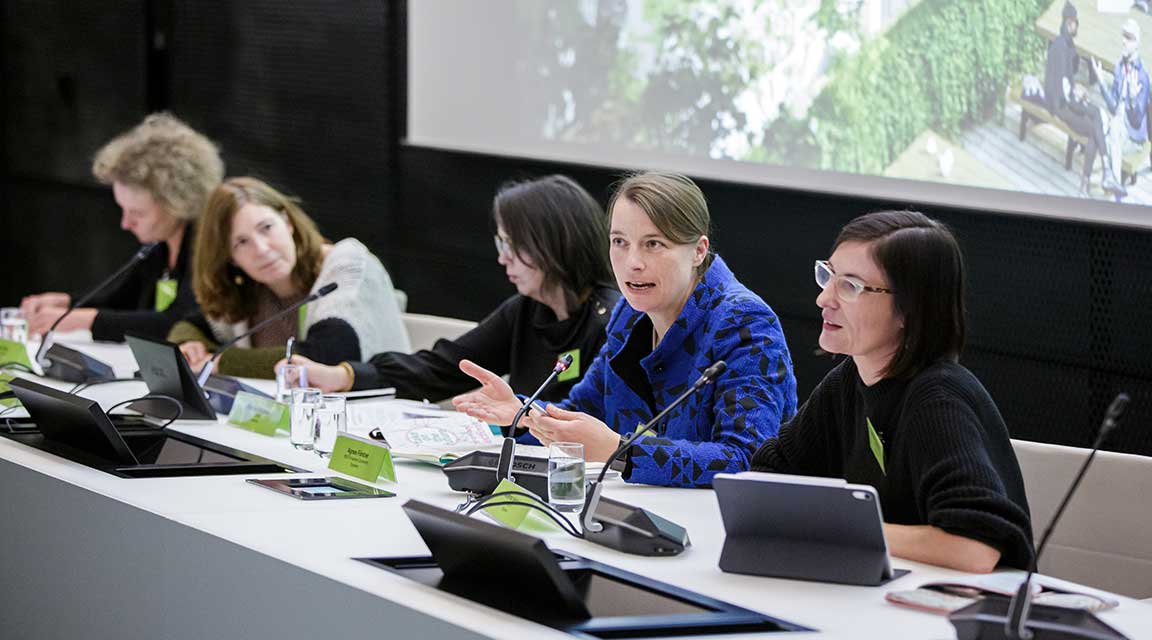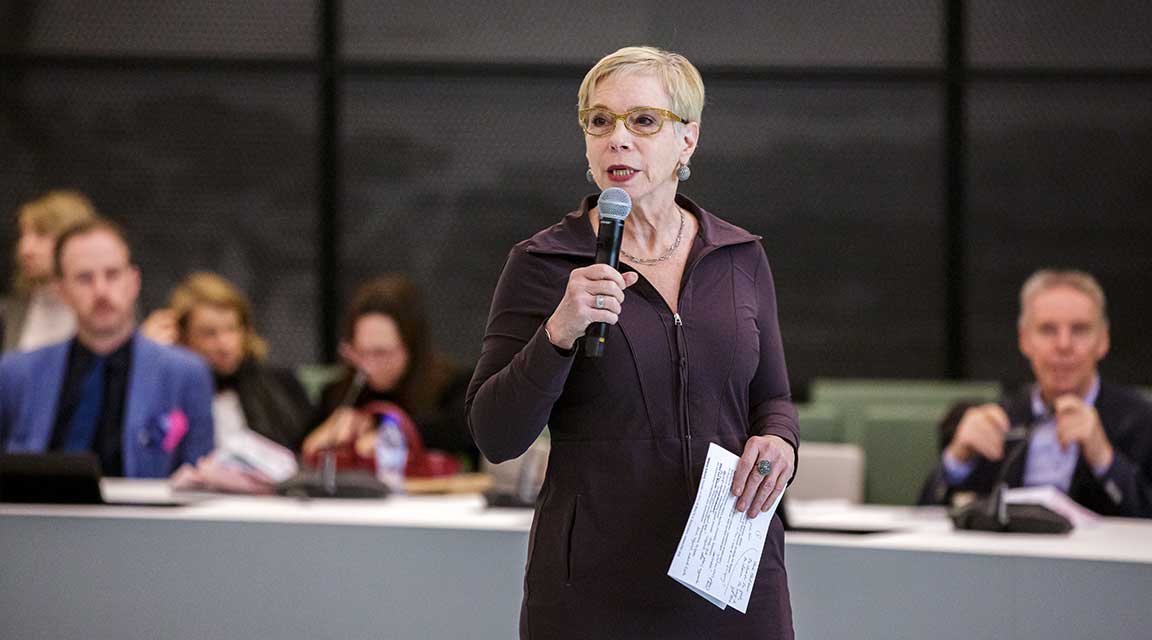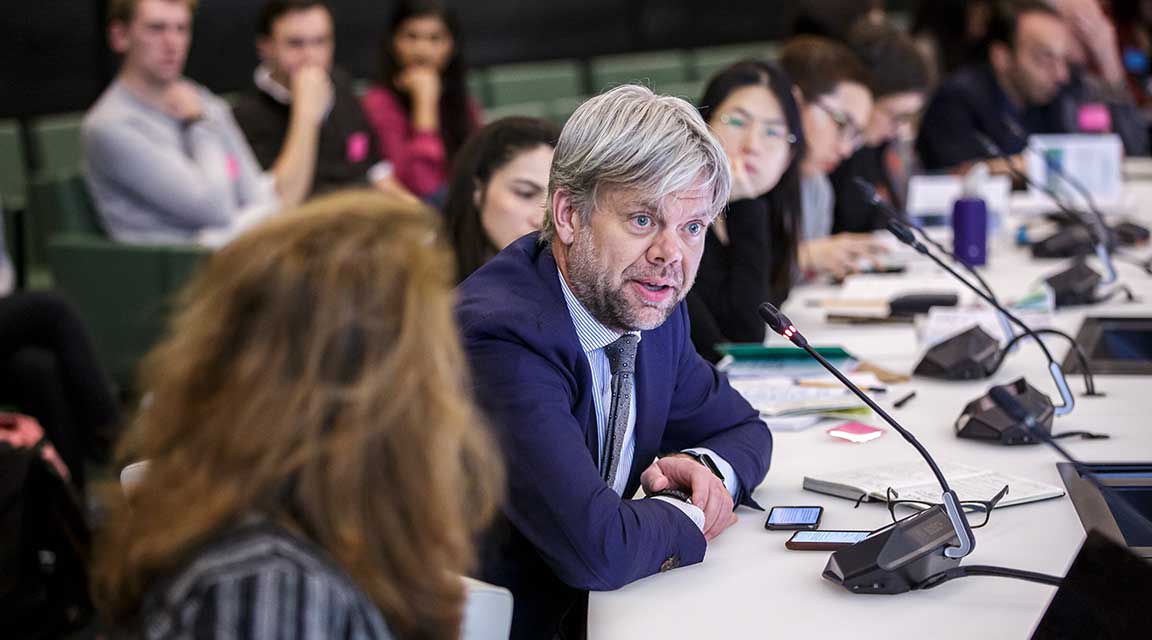Our take on the future
The New Planning Conference - Reporting back
06 maart 2020
As part of 'The New Planning Dialogue', the third activity was a two-day international conference, ‘Take on the future - Critically reflecting on Planning Visions’ on the 10th and 11th of December 2019 in the Netherlands. Dutch and European experts debated over the subject of National Planning and vision making, while reflecting on the draft Dutch national environmental vision, NOVI.
The two-day international conference ‘Take on the Future’ in Rotterdam and Den Haag, with a huge participation from different stakeholders of planning led to meaningful discussions regarding NOVI and the future of planning. An interesting mix of scholars, academicians, practitioners, government officials and students were present, engaged in critical discussions about planning for a resilient and adaptive society. With a wide range of subjects being covered from development policies, spatial planning, territorial governance and small scale local initiatives, the conference pushed forward the agendas of The New Planning dialogue. The conference achieved in understanding the urgency in innovative planning approaches towards a more resilient and future proof Europe and discussed various strategies for implementation of NOVI in the Netherlands.
Day 1
The day one of the conference was started off in the afternoon of 11th December, 2019 with a welcome and introduction by Paul Gerretsen, Director Deltametropolis Association. He believes that our traditional planning skills are lacking in all aspects in order to deal with the challenges. Thus, the urgency to rethink the planning system and the working method were thoroughly discussed during his talk.
“It is critically important to put forward change.” (Paul Gerretsen)
In the first session, Dr. Daniel Galland, professor from NMBU, talked about the shifts seen in the role of planners and designers with a changing context. He talked about the skills that’s needed for the 21st century planner in dealing with the future societal challenges. The session emphasised on the need for the current education system to equip its students/ scholars with capacity building for the future, and the changing focus from vision making to implementation. At the same time, he mentions in his interview about the future hope for planning, spotting the return of the spatial considerations made in the NOVI.
“One of the key qualities of planners of 21st CE is to bring together a key set of skills and implement them simultaneously”. (Daniel Galland)
A panel discussion followed Daniel Galland’s presentation with Henk Bouwman (France), Mike Emmerik, Ruth Höppner, Han Meyer, Cristina Cavaco (Portugal), talking about their experiences as professionals and academicians in the field and highlighted some of the urgencies that they are facing in the current planning system.
After a Dutch dinner and lot of interaction over the dinner tables, the opening night begun with a session by Emiel Reiding (Director, NOVI) about the newly drafted Dutch environment vision, the process and some of the highlighted themes. Three main consideration principles of the NOVI, (a) combining more than one functions and mixed use, (b) nurturing the identity and characteristics of the place, and (c) reducing negative externalities was discussed over with the audience. Emiel Reiding quoted that the NOVI will focus on carbon neutral energy transition and climate adaptation for the future, with a focus on sustainable economies and healthier cities.
“NOVI is not just a document but a process. We need new answers and we can learn from each other” (Emiel Reiding)
The highlight of the opening night was the session by Joachim Declerck (Founding Partner, Architecture Workroom Brussels), who managed to do a wonderful job taking up the responsibility as keynote speaker. “The next big thing will be a lot of small things”, as Joachim explained his statement through skilfully giving examples from his professional career, he showcased how the transition from vision to implementation is only possible through smaller localised initiatives. He emphasised on the sense of urgency that is required to innovate practical solutions to complex problems and the existing gap between local/regional initiatives and big government goals/ visions. The importance of participatory planning by forming local coalitions and creating ownership amongst citizens in energy transition, and other challenges is the most effective way in his experiences. Therefore, he concludes, it is in the manifestation of a lot of small things that we can achieve larger scale changes.
“How can we go from intentions or beautiful words to the facts on the ground? That Passage Al’acte is really a challenge. The whole delta needs to work together” (Joachim Declerck)
The session was followed by a panel discussion with international experts John Bachtler, Daniel Galland, Lawrence Barth, Hans Leinfelder, Fernando Nunes de Silva, René van der Lecq, expressing their views and apprehensions about NOVI and further clarifications and suggestions to Emiel. The session ended with the launch of the book, ‘Shaping Regional futures’ co-authored by Valeria Lingua and Verena Balz. The day was concluded with informal discussions over dinner and drinks.
Day 2
The second day of the conference was held at the splendid conference hall in the Ministry of Infrastructure and Water Management, Den Haag. The war room ambience helped set the tone of the day, adding a shared urgency and gravitas to the discussions. Four sessions were arranged and debated over a wide range of topics
related to the future of planning and review of NOVI. Session 1, ‘Understanding the rationales of NOVI’, chaired by — Ingrid Post (Environment manager/deputy program director, NOVI) with speakers Fernando Nunes da Silva (Portugal), Robert Dijksterhuis (NL), Rienk Kuiper (NL) and Hans Leinfelder (Belgium) discussing about the relevance of the NOVI’s principles and priorities. They critically analysed the draft to understand if the rationales of the vision where sufficiently compatible and yet flexible to the critical challenges of the future. Wil Zonneveld’s (NL) research on the old polder model of governance in the Netherlands was discussed during this session mentioning the changes that are need in the current system.
“There is a lot more spatial thinking that needs to be explored.” (Wil Zonneveld)
Session 2, ‘Planning instruments on par with societal challenges’, Chaired by — Dagmar Keim (Strategic policy advisor, Gemeente Amsterdam) discussed with speakers Lawrence Barth (UK), Jochem de Vries (NL), Ries van der Wouden (NL), about various planning tools that is required to address the future societal changes. The session looked at how NOVI has addressed various innovative planning instruments with the speakers providing insights from around the world. Ries van der Wouden very well pointed out that NOVI as a vision is only referring to the preferable scanarios and talking about the possible solutions. On the other hand it shows that we are not even admitting the possibilities of all the worst probable scenarios.
“Planning comes into force when we need to innovate” (Lawrence Barth)
After lunch, Session 3, ‘Regional design: addressing spatial diversity’ discussed about the previous national plans and approaches. The session was chaired by — Agnes Förster (Professor, RWTH) with speakers Ries van der Wouden, Valeria Lingua (Italy) and Verena Balz.
The speakers gave insights on adaptive planning approaches and institutional settings across Europe. This session was meant to discuss that how we can facilitate the planning practice with the academic research. A lot of comparative studies was discussed within this session based on the book ‘Shaping Regional futures’.
“We have to overcome our idea of a linear planning process with a given ambition.” (Agnes Förster)
The final session, ‘Institutional integration and participation’, Chaired by — Ellen van Bueren (Professor of Urban Development Management, TU Delft) had speakers René van der Lecq (Belgium), John Bachtler (European Policies Research Centre), Henk Hartzema (NL), and Cecilia Braun (Germany) talking about how valuable collaborations between different scales can be achieved through visions. They discussed about the different actors emerging across different levels of governance and how they can be institutionalised.
“The NOVI document makes a number of quite important commitments” (John Bachtler)
Session conclusions
Before we reach the concluding session by Tracy Metz, following are some strong statements and reactions scrutinized over two days.
Policy
— “Spatial planning is a weak policy: there is a gap between ambition and means and there are many restrictions from other policies.”
— Optimize between sectors –Emiel Reiding: “What we’ve done until now is optimization within sectors. This is not working anymore for intertwined problems. What we should do from now on is finding an intertwined approach, find intertwined solutions and an intertwined financing.” This within a horizontal structure.
— Don’t blame the government: Hans Leinfelder reacts, NOVI draws too much upon system responsibility, leaving real responsibility to local and regional governance. The multitude of principles is worrying in terms of executability and accountability.”
— Reis van der Wouden comments that another perspective on the multitude of principles is to embrace it. Meaning it’s flexible, multi-actor and multi-scalar.
— Balance the (de)centralization: When planning policy is decentralized, also the means (money) and rules (law) should be decentralized. As Joachim Declerck reassures, that we all live in the same area, we all cope with the same problems. It’s smarter to redirect budgets for achieving sectoral goals and general goals. Working on climate change issues is not about fighting for new budgets, it’s about redirecting existing budgets and putting them in use for assignments related to climate change.”
— He also suggests the way to practically implement things, by assigning the transitions to a location, the local problems can be discovered and see who and what is needed.
Planning and society
Planning challenges from other European countries were thoroughly discussed over two days and it was realized that the challenges and the solutions are much more similar than expected.
— Hans Leinfelder interrogated all the experts “How can we create a shared sense of urgency, when most people have a carefree existence.”
“The roles of different government tiers is an important issue we need to deal with.” (Cristina Cavaco)
— In general it was voiced by Paul Gerretsen, New planning is about shifting the skills of coping with the future to others. Build planning capacity among non planning professionals. Planning should offer a scheme for the whole society to shape their environment.
— Joachim Declerck added, “We need libraries of strategies, to curate the knowledge we have, make next steps and stop reproducing each other. The energy transition is not only a technical and spatial transition, it is also a cultural transition. We have to engage different skills and explain the narrative.”
Cooperation
— An interesting take on cooperation was given by Jochem de Vries, “How to make people cooperate, when the current model is stimulating to act out of self interest? Reward people for cooperation, make it the new norm (narrative needed), use power (law).
Takes on the Future…
The concluding session witnessed an all-female panel discussion moderated by Dutch American journalist, writer and TV personality, Tracy Metz reflecting on the discussions and conclusions from the day. The main takeaway was that there is still a gap existing between the controls imposed by traditional planning methods versus the new technology driven citizen initiatives. The discussion showed the importance of acknowledging these parallels and how we need to work towards reducing this gap at various stages and across different scales. The concluding remarks best summarises the New planning as a “movement” that re-thinks planning as a profession. The New planning paradigm thus moves away from vision making to planning as an ever changing, dynamic and temporal process.
“The New Planning paradigm is a really good step forward in articulating what the future of planning will be like” (Preetika Balasubramanian)
What was missing?
A talk about the real playing field through which our environment is shaped. ‘Planning’ is not the only force trying to shape the world. So it’s not just about mastering planning, but about mastering how to get the maximum possible influence in shaping our environment. This means knowing how these other forces work, coping with them, convince them to cooperate. In order to work on this, we have to have a look into what is happening at the moment, how the playing field of forces shaping our environment is organized.
During the course of the two days, we also conducted several interviews with different participants (as linked in this page). To know more about the program and the speakers, and the list of directions and learnings so far from the dialogue, visit our website: www.deltametropoool.nl
The New Planning dialogue is a platform, to discuss the progressing issues and the crucial questions about the planning and policies, with a broad audience of planners, policymakers, developers, and academicians. Join the dialogue to opinionate, influence and revolutionize the planning model and support the project by your eminent participation.
Follow the link to know more about the project and connect to us.
